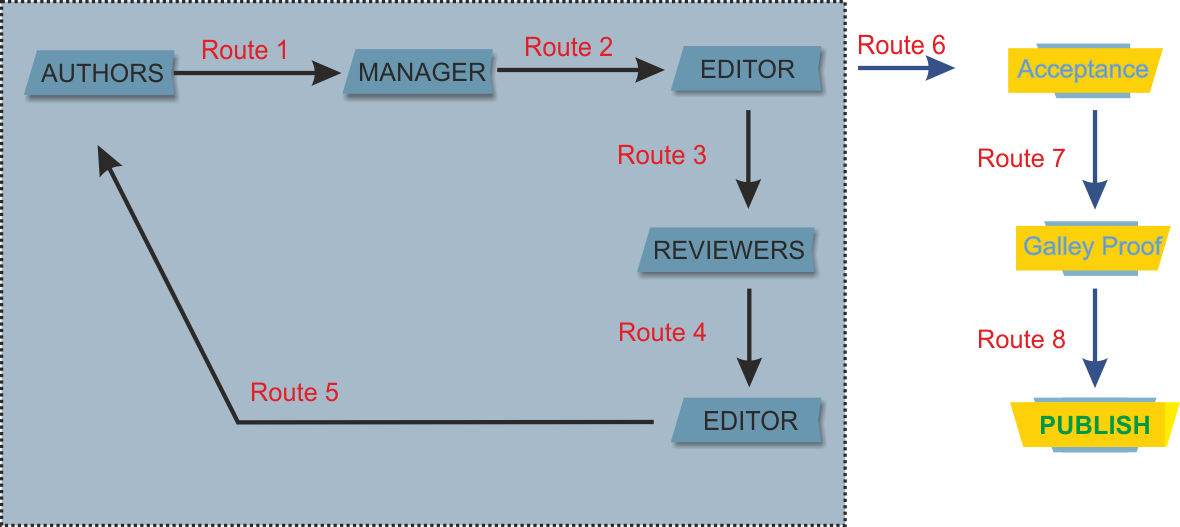All papers are fully peer-reviewed. We only publish articles that have been reviewed and approved by highly qualified researchers with expertise in a field appropriate for the article. We used single blind peer-reviewing process. Detailed information about the flow for the manuscript submission (author) to the acceptance by editor is shown in the following figure.

In short, the steps are:
- Manuscript Submission (by author) (route 1)
- Manuscript Check and Selection (by manager and editors) (route 2). Editors have a right to directly accept, reject, or review. Prior to further processing steps, plagiarism check using turtitin is applied for each manuscript.
- Manuscript Reviewing Process (by reviewers) (route 3-4)
- Notification of Manuscript Acceptance, Revision, or Rejection (by editor to author based on reviewers comments) (route 5)
- Paper Revision (by author)
- Revision Submission based on Reviewer Suggestion (by author) with similar flow to point number 1. (route 1)
- If reviewer seems to be satisfied with revision, notification for acceptance (by editor). (route 6)
- Galley proof and publishing process (route 7 and 8)
The steps point number 1 to 5 is considered as 1 round of peer-reviewing process (see grey area in the figure). And, our reviewing process at least goes through 2 round of reviewing process.
The journal editor or editorial board considers the feedback provided by the peer reviewers and arrives at a decision. The following are the most common decisions:
(i) accept without any changes (acceptance): the journal will publish the paper in its original form
(ii) accept with minor revisions (acceptance): the journal will publish the paper and asks the author to make small corrections
(iii) accept after major revisions (conditional acceptance ): the journal will publish the paper provided the authors make the changes suggested by the reviewers and/or editors
(iv)revise and resubmit (conditional rejection): the journal is willing to reconsider the paper in another round of decision making after the authors make major changes
reject the paper (outright rejection): the journal will not publish the paper or reconsider it even if the authors make major revisions















